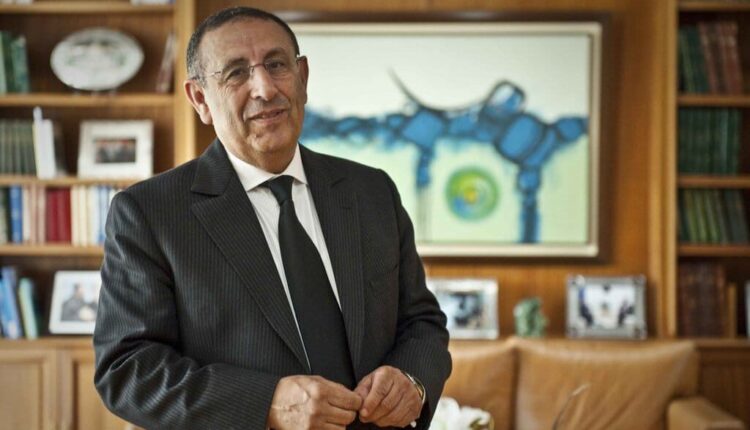Morocco’s New Development Model, A Pan-African Leap Into The Future (Exclusive)
Ambassador Youssef Amrani
Morocco adopted two weeks ago a New Development Model that reshapes the way our nation is conceiving and planning its own future. The Kingdom of Morocco has always known how to continuously focus on the progress of its nation and the well-being of its people. As a reflection of this unwavering commitment, Morocco never failed to reassess the path of its destiny to keep pace with the requirements of development and prosperity in an ever-changing world. As such, the New Development Model stands as a testimony to Morocco’s forward-looking approach and paves the way for a promising, inclusive and bright future for all Moroccans regardless of their gender, social, political or religion backgrounds.
This New Development Model is a result of a large-scale comprehensive national dialogue aiming to tackle contemporary and future challenges.
Under the leadership of His Majesty King Mohammed VI, the processes towards the New Development Plan involved extensive, honest and frank engagement with various sectors of our society.
His Majesty King Mohammed VI called upon the national collective wisdom of the Moroccan people to unify around the same ambition, approach and vision.
In line with Morocco’s new destiny as envisioned in the New Development Model, ourstrong and capable response to the COVID 19 pandemic has demonstrated our deep and honest commitment to domestic, continental and international responsibilities. While other nations struggled in the face of COVID 19, Morocco, has only been further strengthened in its choices and has been confirmed once again as a nation that upholds the values of empathy, solidarity and responsibility. Morocco’s efficient and effective management of the COVID 19 pandemic, and our collaboration with our brothers and sisters in Africa demonstrate our unwavering commitment as a key player in responding to current and future continental challenges.
The New Development Model draws from an inward-looking perspective that Morocco has undertaken to confront and tackle past challenges and shortcomings, while also committing to a better future.
For a thousand-year-old nation like Morocco, this New Development Model lays a strong foundation for building a resilient future, which cannot be done without a thorough diagnosis of the past.
The New Development Model is a direct reflection of Morocco’s diversity as a nation, rich in resources and with a never-evolving economy. It represents a pact between public officials and citizens for the materialization of national aspirations. It is in this sense that the model promotes public participation in all facets of public life. The New Development Model belongs to all Moroccans regardless of their gender, their social status, their geographical background, their political affiliation and their beliefs. It binds all Moroccans together as a nation sharing a common destiny, and collectively working towards a shared prosperous future.
The renewal advocated by this development model covers the national administrative apparatus, different sector reforms, and the procedures to enhance the quality and transparency of public services. The objectives of the New Development Model are doubling the per capita GDP by 2035, increasing the capacity of the economy to generate jobs, significantly reducing social and territorial inequalities, ensuring universal health coverage and providing quality educationas a basis. As reflected in the new model, Morocco promotes the massive use of digital technology, wise regulation of public affairs, and strengthening of domestic investment in education and healthcare facilities.
Morocco is geo-strategically predisposed to provide immense opportunities for intercontinental, regional, and sub-regional co-emergence.
The New Development Model sheds light on Morocco’s openness to the world, and it is for this reason that our country does not conceive its future to be separated from that of its partners.
Morocco has always made its geographical position a driving force for its development, and a responsibility assumed in unison with other nations. Therefore, the New Development Model deems the changes on the international scene not only as challenges but also as opportunities to reinforce integration and cooperation, whether in the Mediterranean, African or Euro-African spheres.
Priority will be given to Africa first, a continent of the future, where the dense network of cooperation agreements linking Morocco to other countries and the potential of the African Continental Free Trade Area open promising prospects for cooperation.
In line with our African policy, the NDM’s a bet for the future, could be a catalyst for deepening partnership and business ties with Africa at the bilateral, regional and continental levels. Such an approach is likely to foster a renewed relationship with our continent, a win-win relationship that mobilizes complementarities, boosts economic profiles and helps build regional value chains in high-potential sectors (agribusiness, textiles, automotive industry, tourism, higher education, innovation, cultural industry and sustainable development and the pharmaceutical industry).
The New Development Model emphasises on a culture of consensus which is deeply rooted within the Moroccan diplomatic tradition. Morocco maintains and proactively fosters the values of sharing, interaction and dialogue within the continent and beyond. This makes Morocco a trusted and credible partner which values above all unity and cohesion in a world where divisions and strife are rife.
The New Development Model is profoundly African in its aspirations as they are aligned with those of a continent that favours dialogue over division, solidarity over selfishness, and cohesion over discord.
The values harboured and promoted by Morocco, the vision defended by the Kingdom, the voices expressed by the Nation echo the same depth of an identity rooted in the African soil.
This New Development Model is a part and parcel of an internal agenda reflected by Morocco’s unwavering attachment, foremost, to its continental, and subsequently, to universal values.
Youssef Amrani, Morocco’s Ambassador to South Africa.


